Video Nasty?
Gaming violence and Dispatches
Last Thursday evening, Channel 4 aired an episode of their current affairs programme "Dispatches" titled "Video Nasties", taking a look at the effect of violent games.
Unfortunately the programme was every bit as biased and poorly researched as we had feared it would be. The only representative of the gaming industry given a chance to respond to the accusations was a rather gormless member of the IDSA, an American group with little or no relevance to the UK, who was questioned aggressively and only got about a minute of air-time in the half hour long programme.
Hardly a balanced look at the subject...
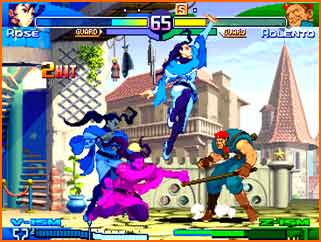
Pseudo-Science
"Video Nasties" was tabloid journalism at its worst, using a mixture of sensationalism, conjecture, sinister background music, emotional footage of victims from last year's school shootings in America, and pseudo-scientific "experiments" which supposedly "proved" the effects on young children of playing violent games.
Unfortunately the experiments were mostly flawed, apparently testing for aggression after the subjects had been playing violent beat 'em ups. It was perhaps no surprise then that the results showed that the subjects responded more aggressively to questions soon after playing the beat 'em up - they were still pumped full of adrenaline!
You would no doubt get similar results testing them after playing rugby or American football, but I don't hear anyone crying for those games to be banned... In fact, playing potentially violent team games such as rugby is actually encouraged in most schools here in Britain.
What the experiments had conspiciously failed to prove was that playing violent games has any long term effects, or that it will turn your child into a killer, which was what the programme seemed to be claiming.
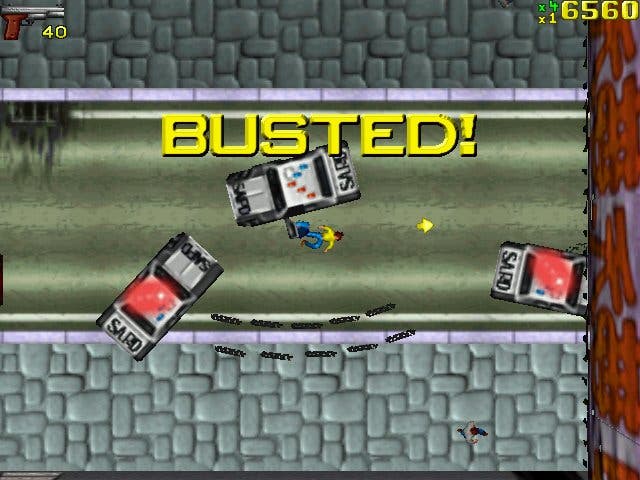
Kids Today
It's also worth noting that the English experiment used as the main "proof" of the programme's theory that violent games cause violence used children aged 11 to 14 as its subjects.
Most of the games the programme's makers were accusing of causing violent behaviour (Grand Theft Auto, Carmaggedon, and Quake 3 Arena all featured prominently) are actually rated 15 or 18. By definition the gaming industry does not consider these games to be suitable for younger children.
In America the ratings system is entirely voluntary, but here in the UK we have a stricter system and shops should refuse to sell games to anybody too young to play them. And that includes the children who were used in the experiment. By focusing on the more relaxed laws in the USA, the programme gave the false impression that the situation is the same here in the UK and elsewhere in Europe, when in fact we already have an enforceable ratings system in place for computer games.
The simple truth is that most violent games are designed with adults in mind, not children, and that the ratings system reflects this. The programme conveniently chose to ignore this.
The programme also mixed and matched console, PC and arcade games without pointing out the obvious differences between them and their market. For example, they talked about shooting at screens with light gun controllers, the implication being that this helped train people to use a real gun.
This is in itself fairly ridiculous, but it is also totally irrelevant to PC games such as Doom, which the programme had singled out as "implicated" in the recent school shootings in America, simply because the shooters in three well-known killings had all played Doom. Hardly surprising, given that Doom is one of the most popular games of all time, with tens of millions of sales across several computer and console systems, and who knows how many pirated or shareware versions of the game floating around. Most teenage boys have probably played Doom in some form.
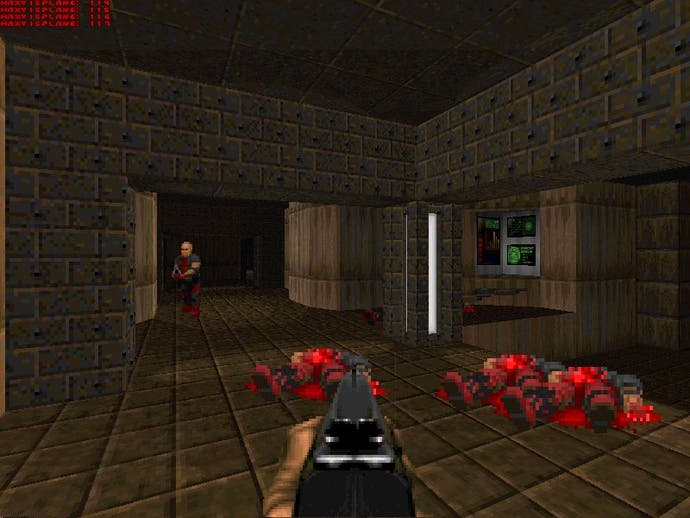
Colonel Grossman Strikes Again
There were other flaws as well. The programme wheeled out Lt Col David Grossman again, to claim that violent games like Quake are "killing simulators".
And again he failed to substantiate his claims that playing an essentially 2D game like Doom with a keyboard or gamepad somehow turns children into trained killers, able to use a gun and take accurate head shots.
He also claimed that these teenage shooters were more accurate than most policemen and soldiers, again suggesting that the games had somehow trained them to use a real gun. He apparently ignored the fact that police and soldiers are often themselves under fire, and aiming at a particular target when they are shooting, rather than being faced with a closely packed gaggle of unarmed targets at close range...
"If you open your newspaper tomorrow and you find out there was a school shooting in Manchester, or anywhere round the world, you should not be surprised", Grossman said.
Well, yes actually, I would be surprised, because here in the UK we have virtually no legal firearms. Several years ago a man burst into a school in Scotland and shot a teacher and several young children. Unlike in the USA, there is no real "gun lobby" in Britain, and so the government had soon succeeded in practically banning private ownership of hand guns.
I'm not going to get into the whole gun control debate, but I think most of you will at least agree when I say that it's hard to have a school shooting when guns are only available through the black market. Not many 12 year old kids know an arms dealer, or have the money to buy an expensive and illegal gun from them...
Comparisons between the UK and USA like this are simply not realistic. The two countries and their cultures are very different, especially when it comes to violent crime and gun ownership. The programme was again ignoring the facts to make their claims more sensational to boost their ratings.
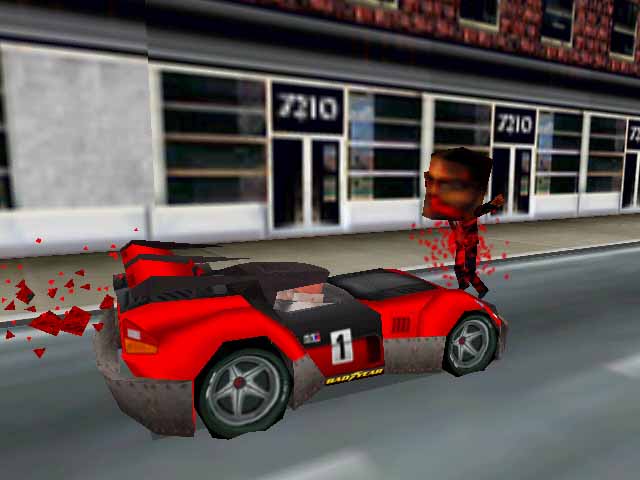
Censorship
Having come to the conclusion that violent games are a threat to society, and are turning an entire generation of children into ruthless killing machines, the programme's makers put forward censorship as the answer.
In the online chat that followed Dispatches, the programme's producer, Emma Whitlock, said that "there is always a place for some form of censorship to protect vulnerable people, each case has to be judged on its own merit".
Personally I think that there is never place for any form of censorship. We might not have quite the tradition of free speech that America has, but clearly censorship is not the answer to every little problem.
In fact, the ratings board here in the UK, the BBFC, was recently reminded of this. They had originally refused to allow Carmaggedon to be released in the UK at all until the developers changed the colour of the blood from red to green, and introduced a half-baked plot about running over zombies to save the world. SCi appealed against this decision to the Video Appeal Committee, and it was eventually overturned. The game was later re-released in its original red blooded version.
Unfortunately, when Carmaggedon II came around the BBFC promptly denied the game's trailer a classification until they had consulted psychologists to see if viewing it could be harmful to children. As SCi were applying for an 18+ certificate, the game and its trailer should never even have been seen by children... Ridiculously, the BBFC was meanwhile perfectly happy to give the green-blood version of Carmaggedon II a certificate. Apparently it's OK to run over pedestrians, as long as they are zombies.
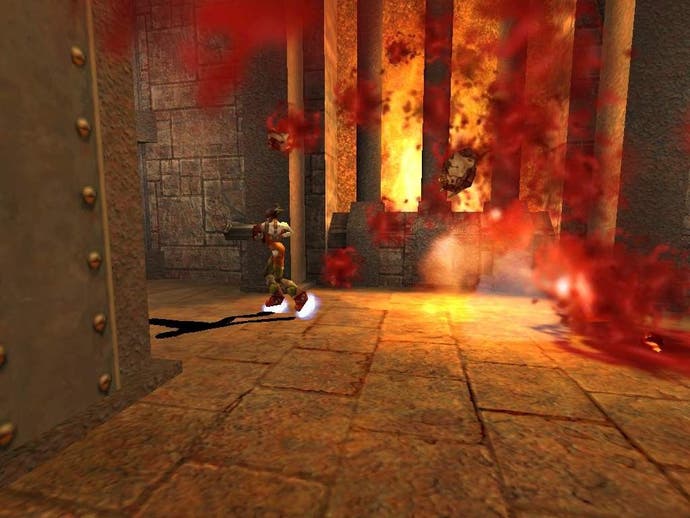
Rated
So what is the answer?
A better managed and more strictly enforced ratings system which will ensure that responsible adults can play whatever they like, while preventing violent games from falling into the hands of young children.
Here in Europe we are already way ahead of the Americans on this, but the Carmaggedon farce and other cases have shown that the ratings system here still isn't bullet proof. All games should be rated in the same way that films are before they can be released, and they should be rated by a body that actually knows something about computer games. The BBFC was originally set up to classify films, and their understanding of games is at best limited.
Selling violent games to under-age children should be treated the same as selling violent movies to them. If a game is rated 18, then the only way that anybody younger than that should be able to legally get hold of it is if their parents buy them it, in which case the responsibility then falls squarely on their shoulders.
In the USA particularly there seems to be a "pass the buck" mentality, where parents lash out and blame anything that comes to hand - films, TV, computer games, music... People have to learn to take responsibility for their own actions, instead of trying to blame somebody else whenever something goes wrong.
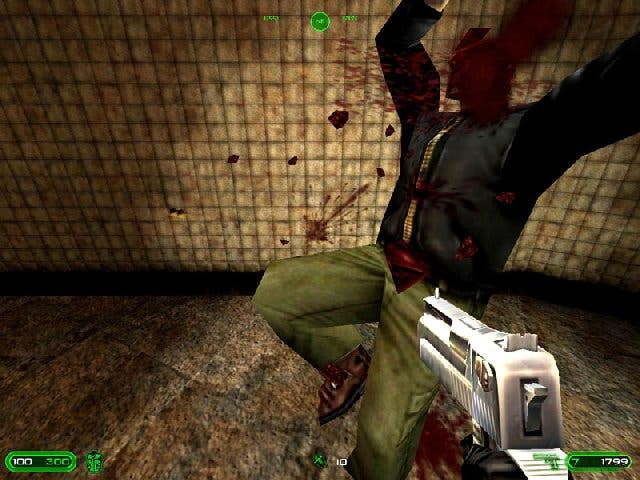
Conclusion
We are currently in the middle of a backlash against violent computer games, led mostly by well-meaning but ignorant parents and greedy lawyers, most of whom know little or nothing about the computer games that they are blaming for society's ills.
Programmes like the "Video Nasties" episode of "Dispatches" trivialise the issue, resorting to sensationalism and pseudo-scientific psycho-babble, and encourage a mistaken knee-jerk reaction that would probably cause far more harm than good. Censorship is not the way forward. It will merely drive violent games underground, which solves nothing, as you can no longer control who gets hold of these games, and you are effectively criminalising people who just want to play a game that is perfectly legal in most other countries.
Games like Kingpin, Carmageddon, and Soldier of Fortune are clearly not designed for children, as most developers and publishers will be happy to tell you. But now it's time for the gaming industry to stop talking and act - they should be working together with governments to ensure that violent games don't get into the hands of younger children.
Hopefully that way we can preserve our right to develop, publish and play violent video games, and at the same time prevent them from reaching kids they were never designed for.

